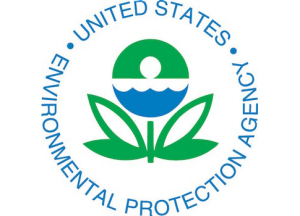Washington, DC… U.S. Environmental Protection Agency (EPA) Administrator Scott Pruitt is announcing the completion of the Midterm Evaluation (MTE) process for the greenhouse gas (GHG) emissions standards for cars and light trucks for model years 2022-2025, and his final determination that, in light of recent data, the current standards are not appropriate and should be revised. Administrator Pruitt is also announcing the start of a joint process with the National Highway Traffic Safety Administration (NHTSA) to develop a notice and comment rulemaking to set more appropriate GHG emissions standards and Corporate Average Fuel Economy (CAFE) standards.

“The Obama Administration’s determination was wrong,” said EPA Administrator Scott Pruitt. “Obama’s EPA cut the Midterm Evaluation process short with politically charged expediency, made assumptions about the standards that didn’t comport with reality, and set the standards too high.”
Under the Clean Air Act (CAA), EPA sets national standards for vehicle tailpipe emissions of certain pollutants. Through a CAA waiver granted by EPA, California can impose stricter standards for vehicle emissions of certain pollutants than federal requirements. The California waiver is still being reexamined by EPA under Administrator Pruitt’s leadership.
“Cooperative federalism doesn’t mean that one state can dictate standards for the rest of the country. EPA will set a national standard for greenhouse gas emissions that allows auto manufacturers to make cars that people both want and can afford — while still expanding environmental and safety benefits of newer cars. It is in America’s best interest to have a national standard, and we look forward to partnering with all states, including California, as we work to finalize that standard,” said Administrator Pruitt.
Additional Background
As part of the 2012 rulemaking establishing the model year 2017-2025 light-duty vehicle GHG standards, EPA made a regulatory commitment to conduct a MTE of the standards for MY 2022-2025 no later than April 1, 2018. This evaluation would determine whether the standards remain appropriate or should be made more, or less stringent.
In November 2016, the Obama Administration short-circuited the MTE process and rushed out their final determination on January 12, 2017, just days before leaving office. Since then, the auto industry and other stakeholders sought a reinstatement of the original MTE timeline, so that the Agency could review the latest information.
EPA and the U.S. Department of Transportation announced a reestablishment of the MTE process in March 2017. And, in August 2017, EPA reopened the regulatory docket and asked for additional information and data relevant to assessing whether the GHG emissions standards remain appropriate, including information on: consumer behavior, feedback on modeling approaches, and assessing advanced fuels technologies. EPA also held a public hearing on this topic.
For more information: https://www.epa.gov/regulations-emissions-vehicles-and-engines/midterm-evaluation-light-duty-vehicle-greenhouse-gas


